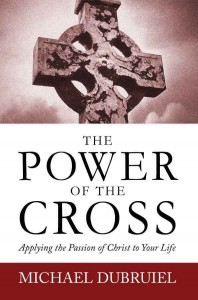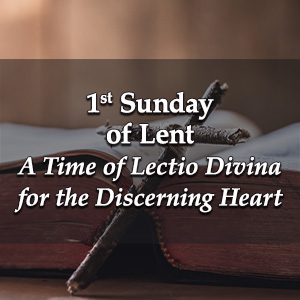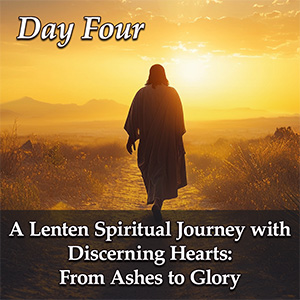Podcast: Play in new window | Download (Duration: 28:27 — 19.6MB) | Embed
Subscribe: Apple Podcasts | Spotify | Amazon Music | Android | Pandora | iHeartRadio | JioSaavn | Podchaser | Gaana | Podcast Index | Email | TuneIn | Deezer | Anghami | RSS | More

Temptation and Spiritual Warfare – Building a Kingdom of Love with Msgr. John Esseff
In this episode of Building a Kingdom of Love, Monsignor John Esseff reflects on the Epistle of St. James and every Christian’s daily spiritual battle. He explores the nature of temptation, emphasizing that it is the ordinary way Satan works in our lives, luring us according to our weaknesses. Monsignor Esseff stresses the importance of recognizing our tendencies toward sin—whether pride, self-reliance, jealousy, fear, or lust—and surrendering them completely to God. He reminds us that even great saints like St. Peter and St. Paul struggled with temptation but overcame it through total reliance on Christ. This episode is a powerful call to vigilance, prayer, and dependence on God’s grace to withstand temptation.
Discerning Hearts Reflection Questions
- What are the primary temptations you struggle with in your daily life? How have you seen patterns of sin or weakness develop over time?
- St. James teaches that God does not tempt us but allows trials for our growth. How can you view your temptations as opportunities to deepen your reliance on Christ?
- Monsignor Esseff discusses how Satan studies each of us to exploit our weaknesses. How can you be more vigilant in recognizing and resisting these attacks?
- The Lord’s Prayer asks, “Lead us not into temptation, but deliver us from evil.” How can praying this with sincerity change your approach to spiritual warfare?
- Self-reliance is a major obstacle in the spiritual life. In what ways do you try to handle struggles on your own instead of surrendering them to God?
- What spiritual practices—such as prayer, fasting, or the sacraments—help you guard against temptation? Are there areas where you need to strengthen your defenses?
- Temptation is not a sin, but giving in to it leads us away from God. How can you distinguish between being tempted and willfully choosing sin?
- Many people struggle with shame from past sins, like the priest Monsignor mentioned who experienced childhood humiliation. How can God heal past wounds that may still influence your choices today?
- The devil wants to isolate us in our struggles, but God calls us to community. How can seeking guidance from a spiritual director, priest, or trusted friend help you overcome temptations?
- St. Paul said, “What I want to do, I do not do, but what I hate, I do” (Romans 7:15). How does this struggle resonate with you, and how can you invite God’s grace to transform your heart?
Msgr. John A. Esseff is a Roman Catholic priest in the Diocese of Scranton. Msgr. Esseff served as a retreat director and confessor to St. Teresa of Calcutta. He continues to offer direction and retreats for the Sisters of the Missionaries of Charity worldwide. Msgr. Esseff encountered St. Padre Pio, who would become a spiritual father to him. He has lived in areas around the world, serving in the Pontifical Missions, a Catholic organization established by St. Pope John Paul II to bring the Good News to the world, especially to the poor. Msgr. Esseff assisted the founders of the Institute for Priestly Formation and continues to serve as a spiritual director for the Institute. He continues to serve as a retreat leader and director to bishops, priests, sisters, seminarians, and other religious leaders worldwide.

 Steps to Take as You Follow Christ
Steps to Take as You Follow Christ
 We HIGHLY encourage you to download this exceptional work.
We HIGHLY encourage you to download this exceptional work. A Lenten Spiritual Journey with Discerning Hearts: From Ashes to Glory – Discerning Hearts Podcast
A Lenten Spiritual Journey with Discerning Hearts: From Ashes to Glory – Discerning Hearts Podcast 1st Sunday of Lent – A Time of Lectio Divina for the Discerning Heart Podcast
1st Sunday of Lent – A Time of Lectio Divina for the Discerning Heart Podcast
 A Lenten Spiritual Journey with Discerning Hearts: From Ashes to Glory – Discerning Hearts Podcast
A Lenten Spiritual Journey with Discerning Hearts: From Ashes to Glory – Discerning Hearts Podcast Saturday after Ash Wednesday – A Time of Lectio Divina for the Discerning Heart Podcast
Saturday after Ash Wednesday – A Time of Lectio Divina for the Discerning Heart Podcast
 From CNA:
From CNA:
